
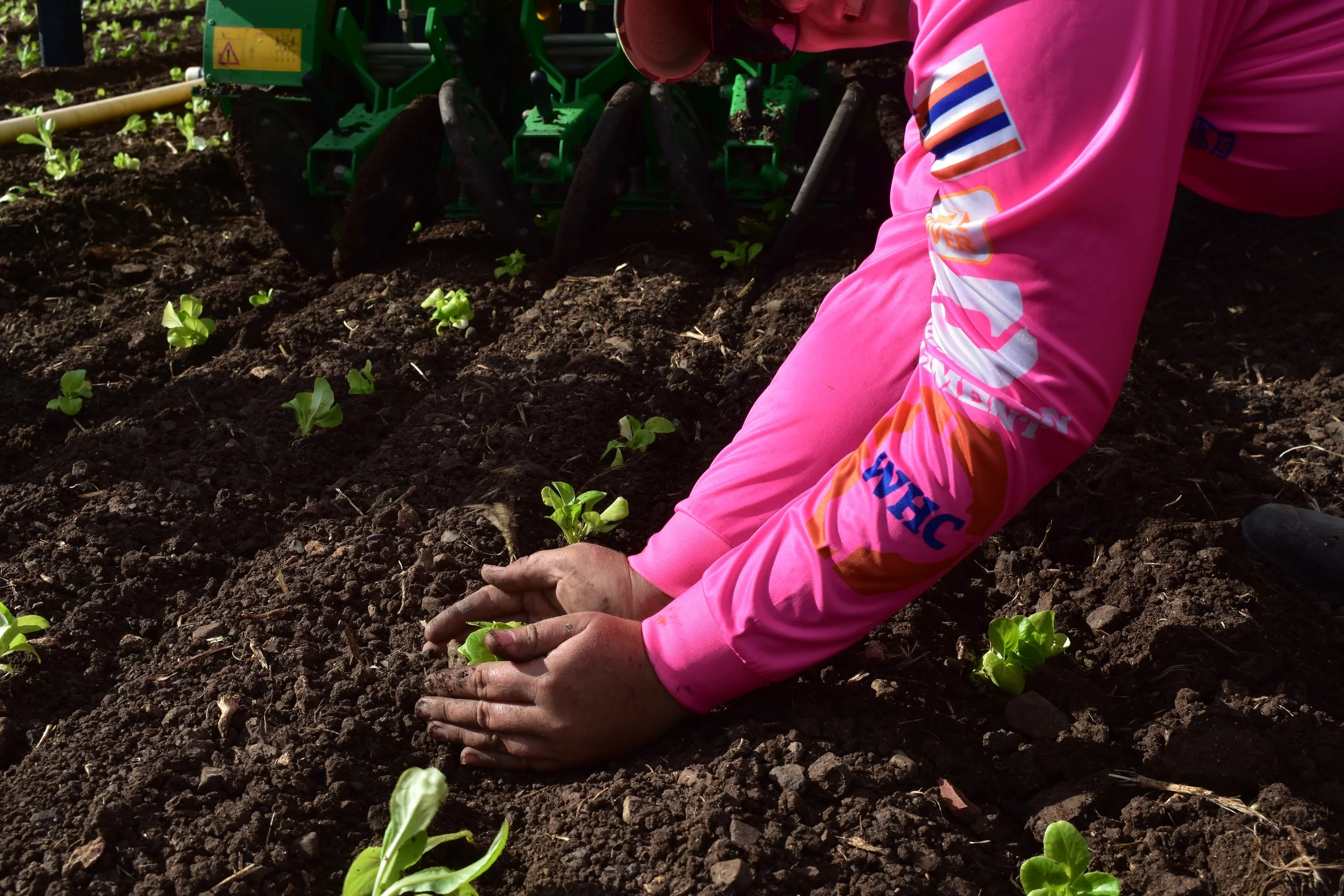

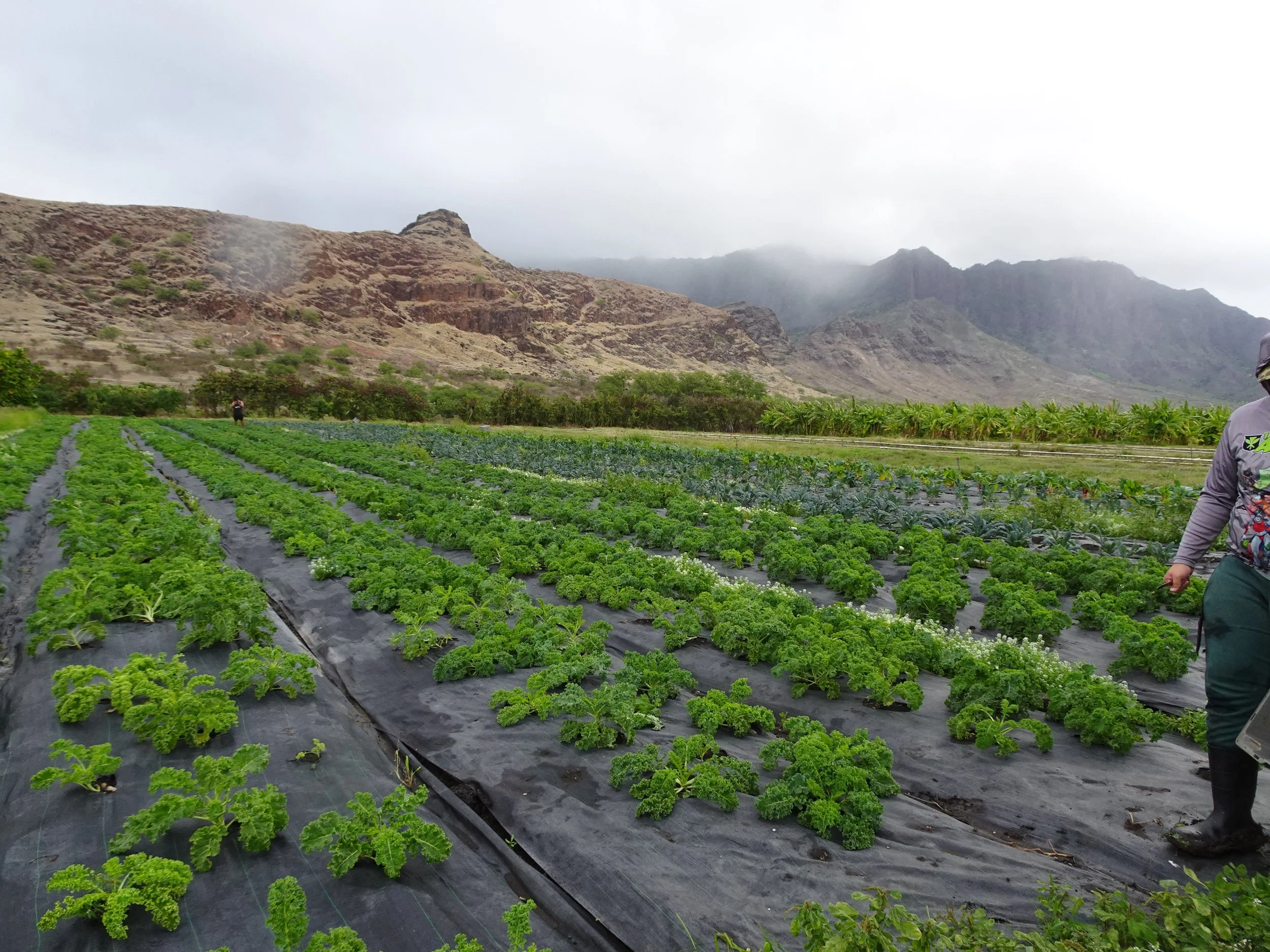

OUR mission
We are building a future of māʻona, of plenty, by connecting youth and land through the daily practice of aloha ʻāina, empowering youth to succeed in college and secure sustaining careers, and growing organic produce that yields individual and communal vitality.

Opportunities
Join our team! We’re currently accepting applications for farm work and youth support.
Not quite sure about what you want to do next? Check out our paid internships!
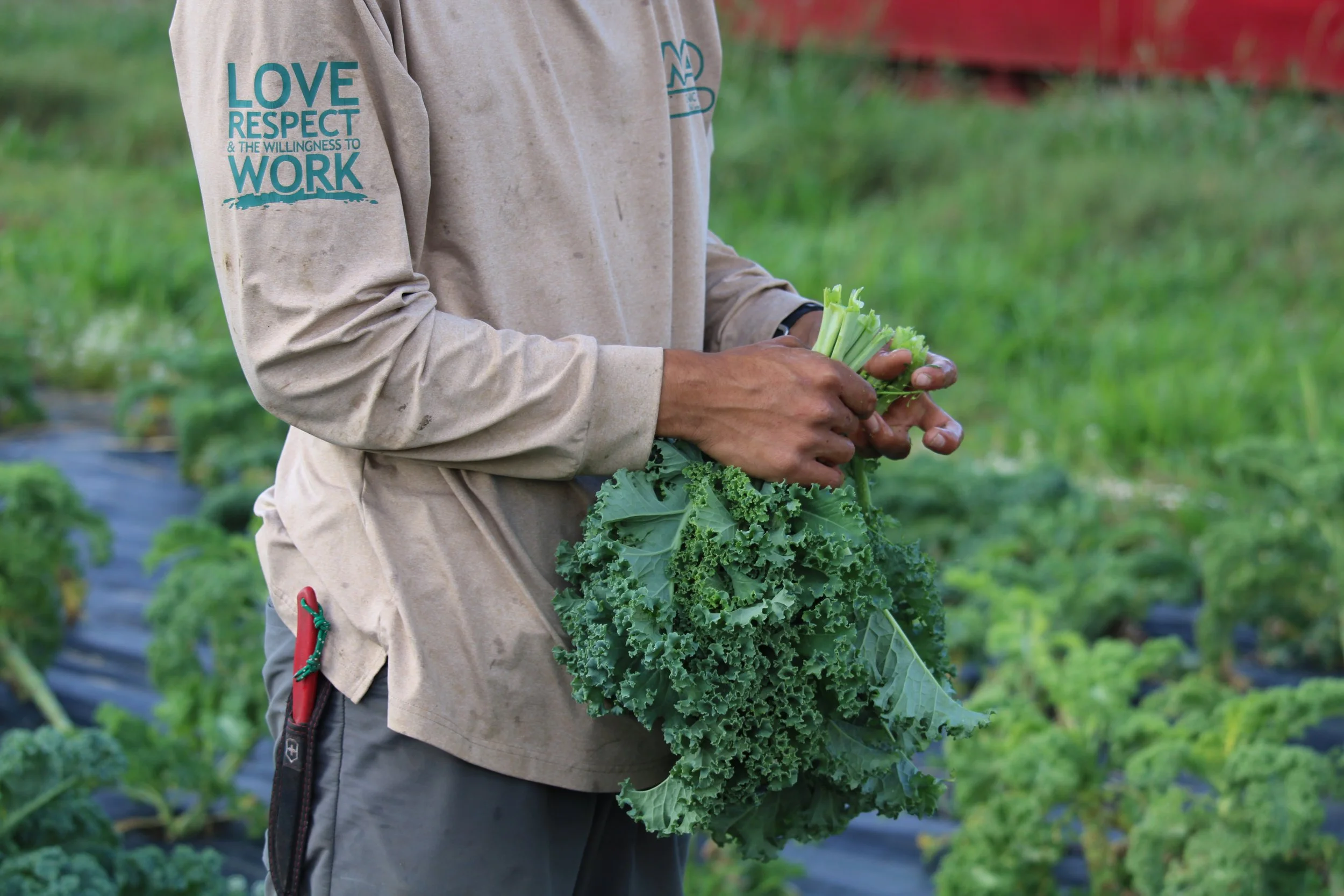
Education Programs
MA‘O Organic Farms offers community education programs that range from keiki- to kupuna. Our core programming unfolds in an edu-preneurial ʻauwai, or college to career pathway, through which youth shoulder kuleana (responsibility), receive individualized support and mentorship, and engage in peer-to-peer learning.

OUR FARM
MAʻ O operates one of the largest certified organic farms in Hawaiʻi, where we grow over 40 different varieties of fruits and vegetables. The farm enterprise is co-managed by youth interns and apprentices, who shoulder the hana nui of feeding community while receiving training and mentorship to become entrepreneurial community leaders.
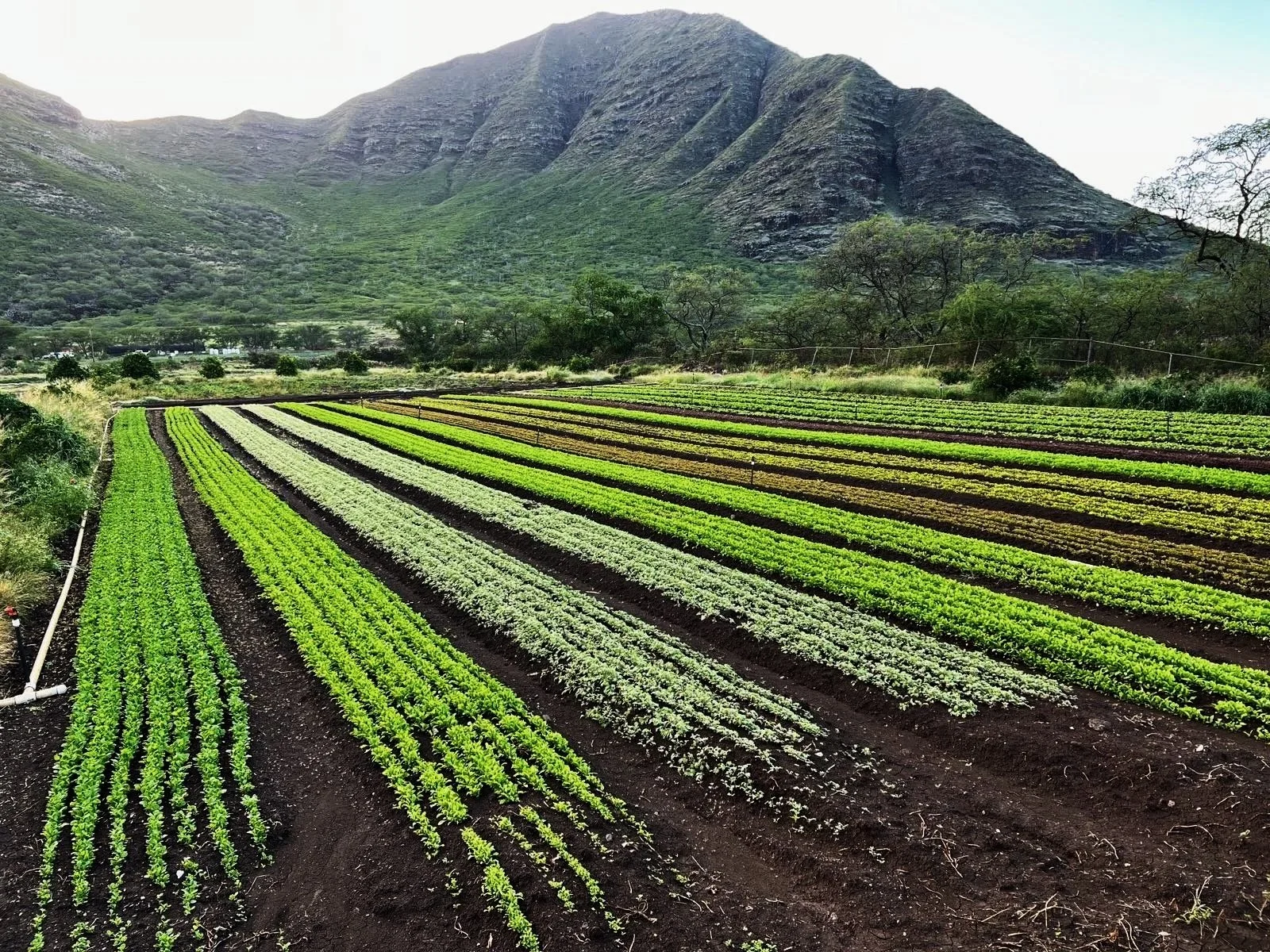
Our ROOTS
In 2000 a group of community members founded the Waiʻanae Community Re-Development Corporation (WCRC) to grow two of the community’s greatest assets: the rich food producing traditions of the region and youth who were not achieving their academic potential. WCRC created a social enterprise called MAʻ O Organic Farms (MAʻ O) and began developing programming to mentor, educate and empower youth.

GROWING ABUNDANCE IN MĀKAHA
MAʻO now has a rare opportunity to transition 249 acres in Mākaha into community stewardship. Through a land grant, The Harry and Jeanette Weinberg Foundation will transfer ownership of several parcels of land to MAʻO.
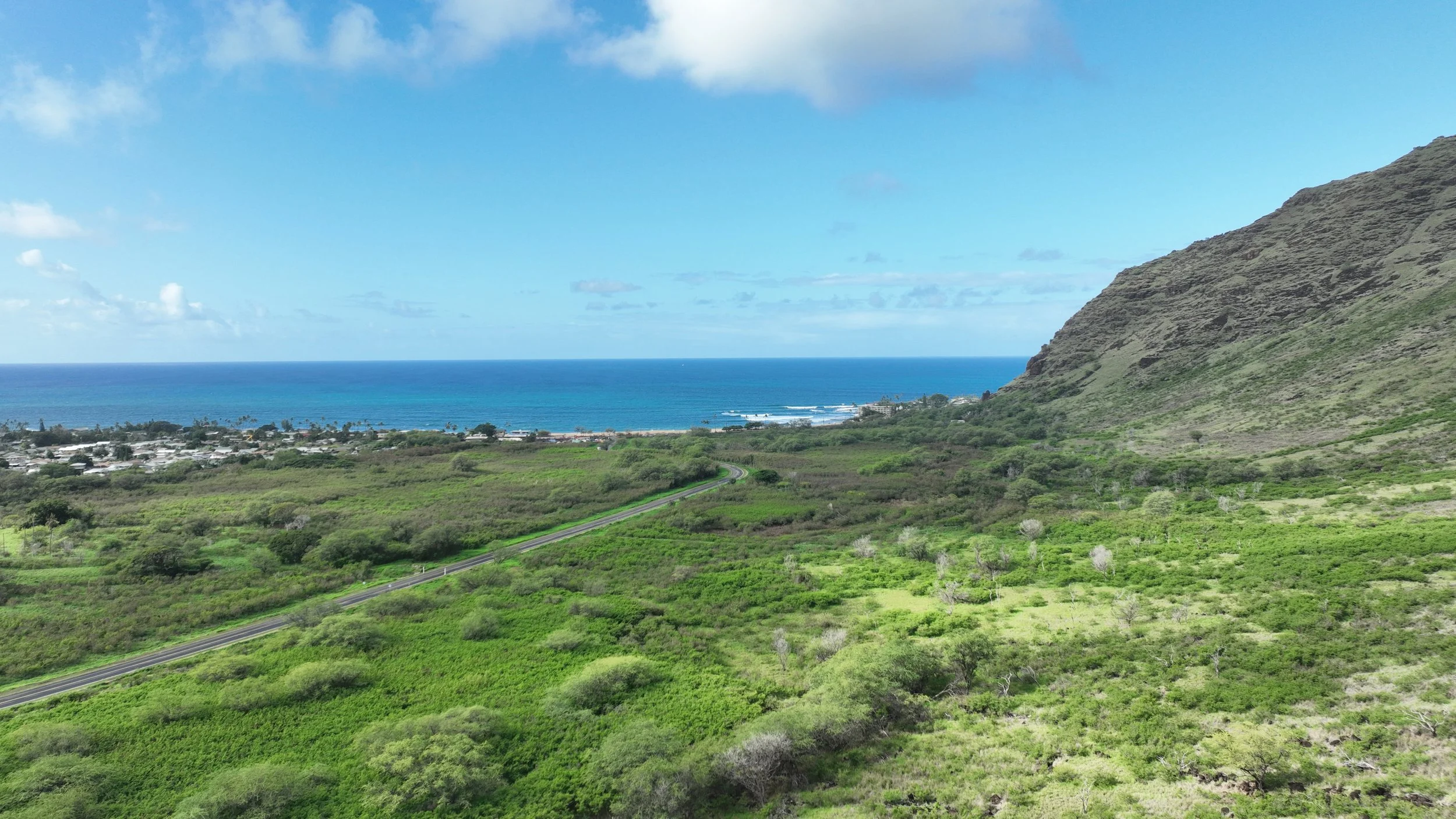
Ways to Connect with MA’O
Whether you join our CSA, shop at our farmers markets, or become a Co-Producer, every connection helps grow a healthier, more abundant Wai’anae and Hawai’i. Together we grow local food, invest in youth, and sustain the ’āina that sustains us. Be part of the movement that nourishes our future.
Learn about subscriptions, pick-ups, and what’s in the box
See where we’ll be this week and what’s fresh
Invest in local ’āina and youth leadership.





Social Enterprise
MAʻ O Organic Farms is structured as a revenue-generating nonprofit organization. This allows us to take a systemic view and work with partners to make critical investments that benefit youth, their future employers and the broader community, now and for the future.